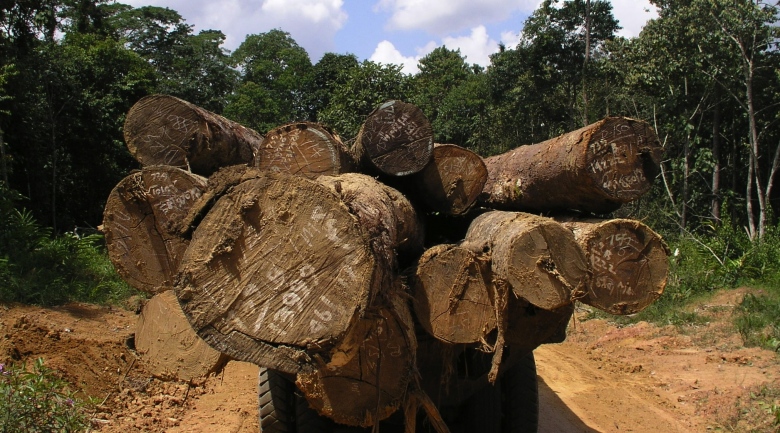
Its report, Justice for Forests, says that most illegal logging operations are run by organised crime, and much of the profit goes to corrupt officials.
Countries affected include Indonesia, Madagascar and several in West Africa.
The bank says that pursuing loggers through the criminal justice system has made a major impact in some nations, and urges others to do the same.
It also recommends that aid donors should fund programmes that strengthen the capacity of law enforcement and legal authorities to tackle the illegal timber trade.
"We need to fight organised crime in illegal logging the way we go after gangsters selling drugs or racketeering," said Jean Pesme, manager of the World Bank Financial Market Integrity team.
The analysts calculate that an area of forest the size of a soccer pitch is illegally logged every second.
Chainsaws of supply
The report picks out a number of ways in which illegal timber is managed in a similar way to other prohibited commodities such as drugs.
Brazil’s deforestation rate has risen and fallen in recent years, as enforcement has changed
But currently, it says, "most forest crimes go undetected, unreported, or are ignored.
"All too often, investigations – in the rare event that they do take place – are amateurish and inconclusive, and the few cases taken to court tend to be of trivial significance, prosecuting people whose involvement in crime is due to poverty and exploitation."
This last comment highlights the very differing scales of illegal logging, which encompasses everything from mechanised teams to individual villagers taking wood for fuel.
However, it says, a number of countries including Indonesia and Papua New Guinea are getting tougher, and starting to bring prosecutions higher up the criminal food chain.
Western countries, consumers and businesses can also play a significant role in cleaning up forestry, the report says.
